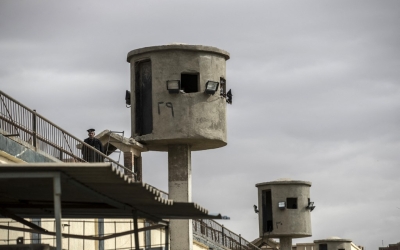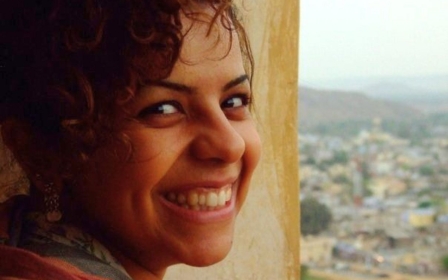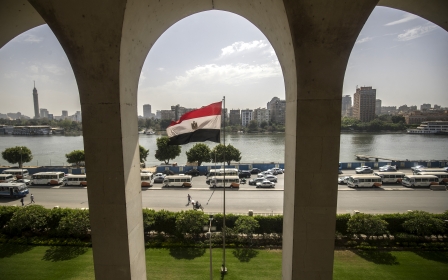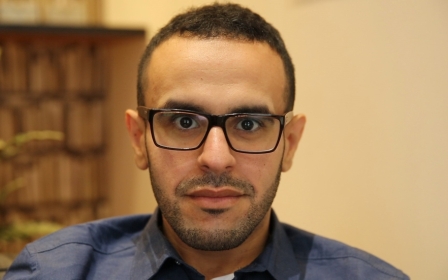Several Egyptians announce hunger strikes in solidarity with political prisoners
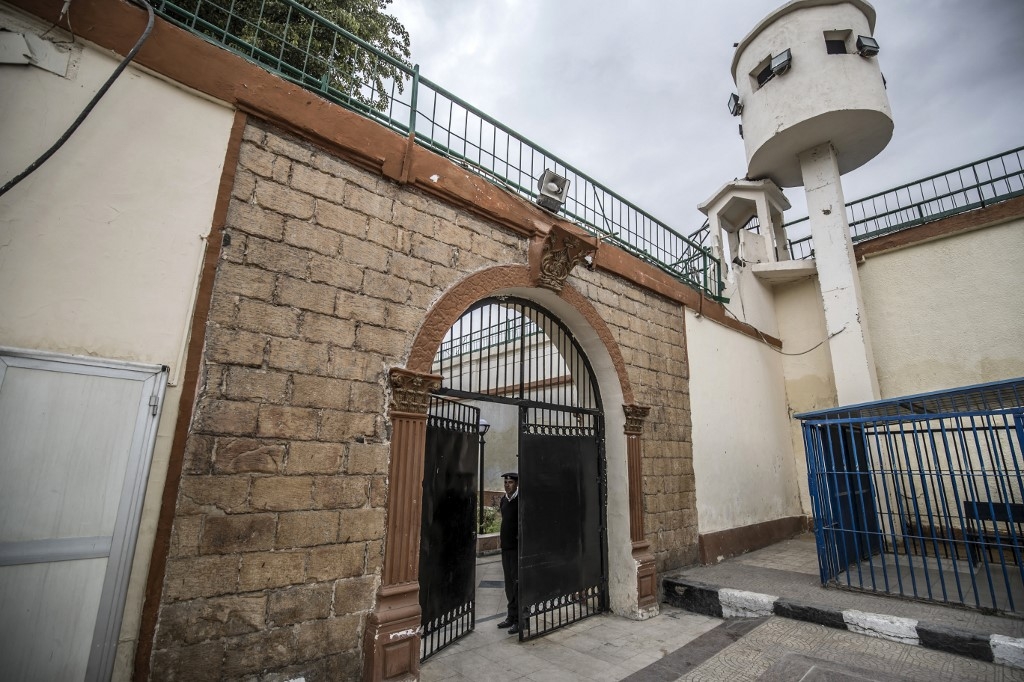
Several public figures in Egypt announced plans on Tuesday to launch hunger strikes in solidarity with political prisoners protesting against their continued detention.
Journalist Karim Yehia announced in a Facebook post that he would begin to go without food on Tuesday in support of Hisham Fouad, an imprisoned journalist who first began a hunger strike last week.
"I launched this sit-in and strike for the freedom of Hisham and dozens of my fellow journalists, detainees and prisoners of conscience of all stripes," Yehia wrote.
Aida Seif al-Dawla, co-founder of al-Nadeem Center for the Rehabilitation of Victims of Violence and Torture, and Mohammed Zaree, the director of the Cairo Institute for Human Rights Studies, announced on Thursday that they would begin one-day hunger strikes in solidarity with Fouad, as well as imprisoned graduate student Ahmed Samir Santawy, activist Ahmed Badawi, and many others currently imprisoned in Egypt.
Independent Egyptian news site Mada Masr first reported the news of the solidarity hunger strikes.
Santawy has been on strike for three weeks, following his arrest upon his return from Vienna, where he was studying at the Central European University in Austria. He was sentenced to four years in jail for publishing "false news".
After being interrogated on 1 February, he was forcibly disappeared and later reappeared at a National Security Agency office in Cairo.
Fouad, meanwhile, began his hunger strike last Saturday, in protest at his continued imprisonment beyond a legal two-year limit.
Fouad's lawyer told Mada Masr that he announced his strike during a detention renewal session the next day, when a judge extended his detention for another 45 days. This was the 25th time his detention was extended since the summer of 2019.
At least 60,000 people have been imprisoned since Egyptian President Abdel Fattah el-Sisi came to power in a 2013 coup, according to Human Rights Watch (HRW).
Rights groups and medical professionals have called on the US administration of President Joe Biden to push Cairo into improving its prison conditions, after a steep rise in inmate deaths were reported.
The reported conditions include "torture and abuse (including sexual abuse); lack of access to necessary medicine, treatment, or care; inadequate facilities that do not allow proper light or air circulation; and extreme overcrowding".
A report by the Freedom Initiative, an independent human rights group, highlighted the specific cases of 18 people it described as experiencing "critical cases of medical negligence" in Egypt's prisons, as well as 11 others who have died in recent years.
Egypt has also come under increased criticism in recent months over a drastic increase in state-sanctioned killings. In 2020, the number of executions tripled from the year before, making Egypt the world's third-most prolific executioner after China and Iran.
According to the Geneva-based Committee for Justice rights group, at least 92 Sisi opponents have been executed since 2013, and final death sentences have been issued for 64 others who may be executed at any moment.
Last month, an Egyptian court upheld the death sentence for 12 members of the Muslim Brotherhood, including two senior members.
Middle East Eye propose une couverture et une analyse indépendantes et incomparables du Moyen-Orient, de l’Afrique du Nord et d’autres régions du monde. Pour en savoir plus sur la reprise de ce contenu et les frais qui s’appliquent, veuillez remplir ce formulaire [en anglais]. Pour en savoir plus sur MEE, cliquez ici [en anglais].


